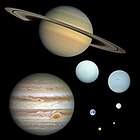Wikipedia:Today's featured article
|
Today's featured article Each day, a summary (roughly 975 characters long) of one of Wikipedia's featured articles (FAs) appears at the top of the Main Page as Today's Featured Article (TFA). The Main Page is viewed about 4.7 million times daily. TFAs are scheduled by the TFA coordinators: Wehwalt, Dank and Gog the Mild. WP:TFAA displays the current month, with easy navigation to other months. If you notice an error in an upcoming TFA summary, please feel free to fix it yourself; if the mistake is in today's or tomorrow's summary, please leave a message at WP:ERRORS so an administrator can fix it. Articles can be nominated for TFA at the TFA requests page, and articles with a date connection within the next year can be suggested at the TFA pending page. Feel free to bring questions and comments to the TFA talk page, and you can ping all the TFA coordinators by adding " |
Featured article candidates (FAC) Today's featured article (TFA):
Featured article tools: |
From today's featured article
Whisky Galore! is a British comedy film produced by Ealing Studios and released on 16 June 1949, starring Basil Radford, Bruce Seton, Joan Greenwood and Gordon Jackson. The directorial debut of Alexander Mackendrick, it was based on the 1947 novel Whisky Galore by Compton Mackenzie (pictured), and written by Mackenzie and Angus MacPhail. Inspired by the 1941 wreck of the SS Politician, the story concerns a shipwreck off a fictional Scottish island. The islanders, who have run out of whisky because of wartime rationing, salvage cases of it from the ship, against the opposition of the local Customs and Excise men. Like other Ealing comedies, Whisky Galore! explores the actions of a small group facing and overcoming a more powerful opponent. The film was well received on release; renamed Tight Little Island, it became the first film from the studios to achieve box office success in the US. It was followed by Rockets Galore!, a sequel. A remake was released in 2016. (Full article...)
From tomorrow's featured article
The Icelandic horse is a breed of horse developed in Iceland. Developed from ponies brought to Iceland by Norse settlers in the 9th and 10th centuries, the breed is mentioned in Icelandic literature and historical records. They are long-lived, hardy, and have few diseases in their country. In addition to the gaits typical of other horse breeds, many Icelandic horses can also do the tölt (pictured) and the flying pace. The only breed of horse in Iceland, sizable populations exist in Europe and North America. They are used for sheepherding work in Iceland, leisure, showing, and racing. Selective breeding and natural selection with the Icelandic climate developed them into their current form. In the 1780s, much of the breed was killed after a volcanic eruption at Laki. The first breed society for the Icelandic horse was created in Iceland in 1904; the breed is now represented by organizations in 19 nations, under the auspices of the International Federation of Icelandic Horse Associations. (Full article...)
From the day after tomorrow's featured article
A planet is a large, rounded astronomical body that is neither a star nor a stellar remnant. The Solar System (pictured) has eight: the four terrestrials, Mercury, Venus, Earth, and Mars; and the four giant planets, Jupiter, Saturn, Uranus, and Neptune. The term "planet" at first included the Sun, Moon, and the five naked-eye planets that move across the background of the stars; they were seen as having associations with the gods. Copernicus theorized the Earth was a planet and, like the others, orbited the Sun. "Planet" came to include many objects, such as moons, within and beyond the Solar System. The International Astronomical Union in 2006 defined a planet in the Solar System to have cleared its neighborhood of other bodies, and that extrasolar planets should orbit stars and not be large enough to support deuterium fusion. Many planetary scientists, though, still apply the word "planet" more broadly, including dwarf planets, planetary-mass moons, rogue planets, and brown dwarfs. (Full article...)




